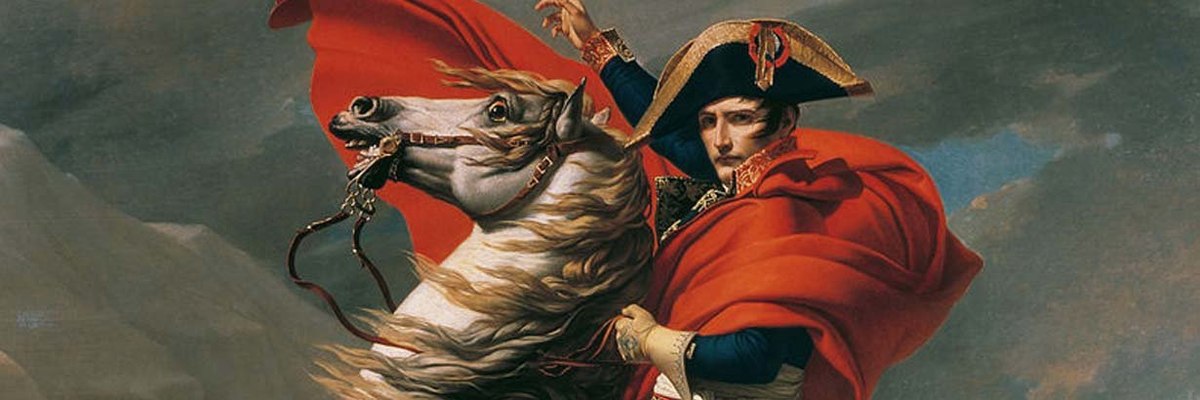The former emperor is more popular than unpopular in France today, particularly among men
You can read this article in French on the YouGov France website
Next month sees the release of the biopic ‘Napoleon’, by director Ridley Scott and starring Joaquin Phoenix as the emperor. One in four French adults (26%) suggest they would like to see the movie, and the film’s upcoming launch raises the question: what does modern France think of Napoleon Bonaparte?
Napoleon is more popular than unpopular in France today, with one in three French adults (34%) having a favourable view of the former emperor compared to one in five who have an unfavourable view (21%). A further one in three have a neither favourable nor unfavourable view (34%), while 9% are unsure.
Men in particular are more likely to have a favourable view of Napoleon (44%) compared to 26% of women. Left-wing French people have a less favourable view of Bonaparte than their right wing counterparts (see section at end of article).
How is Napoleon’s legacy seen in France, and how should he be remembered?
2021 saw the bicentennial of Napoleon’s death, with controversy over how to mark the occasion, with some calling for celebrations and others for a boycott. An aide to Emmanuel Macron was keen to stress that actions taken by the president that day constituted “commemoration, not a celebration”.
Macron appears to have chosen the path that would satisfy the largest number of people. When it comes to how France should remember Napoleon, the most common response is “he should be marked as a notable historical figure in a neutral or balanced fashion”, at 49%. One in eight (13%) say he should be celebrated, while only 2% say he should be condemned – although a further 8% say he should not be remembered at all.
So how does France view Napoleon’s legacy?
Asked how France should feel about Napoleon’s legacy, 32% say the nation should be proud. Only 9% say we should be ashamed, while 44% say neither proud nor ashamed.
More than one in three French adults consider Bonaparte’s legacy to be either “entirely or almost entirely positive” (9%), while 28% see it as “more positive than negative”. A further 27% see it as “equally positive and negative”, while only 10% see it as primarily or entirely negative, with the rest unsure.
Likewise, one in three think Napoleon left France better off in the long run (32%), compared to 17% who think the country was worse off as a result, and 23% who say it was neither better nor worse off.
They are far less likely to think Europe (16%) and the wider world (9%) were better off for the emperor’s existence.
In discussing the Napoleon film, Ridley Scott came in for criticism for comparing Bonaparte to Adolf Hitler and Joseph Stalin (he additionally compared him with Alexander the Great).
The majority of French adults say the Hitler and Stalin comparisons are inappropriate (at 70% and 62% respectively), while the Alexander the Great comparison is seen as appropriate by 45% to 20%.
So how do French people see Napoleon as a historical figure?
In contrast to some other European countries, the word French people most associate with Napoleon is “ambitious”, at 43%. Second most popular is “authoritarian” at 38%, followed by “great general” at 31%.
Even in France, British propaganda that Napoleon was physically short persists, with 29% saying this was one of the top three attributes they associate with the emperor. A further 25% see him as a “visionary”, and 16% a “great administrator”.
Far fewer describe him as a tyrant (11%) or warmonger (10%), and fewer still as a misogynist (5%) or racist (3%). Bonaparte’s 1802 decision to re-establish slavery in French colonies has been the focus of increased debate in the wake of the Black Lives Matter movement, although presidential aides to Macron have dismissed criticisms of Napoleon as racist as “cancel culture”.
Was Napoleon a champion of the French revolution, or its betrayer?
When it comes to Napoleon’s legacy and the French Revolution, to this day there is still debate as to whether Napoleon is a champion of the revolution, or its betrayer: Napoleon himself proclaimed: “I am the revolution”.
Among the public today, people are twice as likely to see Napoleon more as a champion of revolutionary ideals (31%) than a betrayer of them (16%). A further 24% see him as neither, and 28% are unsure.
Napoleon is less popular on the left wing than the right
There is somewhat of a division in French politics over Napoleon, with the former emperor less popular on the left than the right. Only 26% of French adults who identify most closely with one of the left wing NUPES group of parties have a favourable view of Napoleon, compared to 43-47% for those who identify most with a party associated with 'la majorité présidentielle' (i.e. parties in the governing coalition, primarily Renaissance), the right wing Les Républicans and UDI parties, or the far right Rassemblement National.
By contrast, 38% of NUPES have an unfavourable view of Napoleon, compared to 13-17% for these other political groups.
That is not to say that the left has a universally negative view of Napoleon. NUPES are more likely to say that his legacy is generally positive (38%) than negative (13%), and more likely to say France should be proud of his legacy (25%) than ashamed (13%) – although most feel it should be neither proud nor ashamed (49%).
They are, however, much less likely to see him as a champion of the French Revolution (25%) – compared to 38-45% among the other voter groups.
Those feeling closest to la majorité présidentielle, Les Républicans / UDI tended to have similar, relatively positive views, with Rassemblement National following the trend but being more likely to say “don’t know”.
See the full results in English / in French
You can also see attitudes to Napoleon from other European countries here
Photo: Wikimedia Commons








